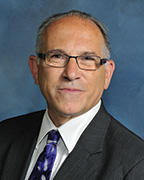 Landy Insurance Agency, Inc." width="144" height="180" /> John Torvi, Herbert H. Landy Insurance Agency, Inc.
Landy Insurance Agency, Inc." width="144" height="180" /> John Torvi, Herbert H. Landy Insurance Agency, Inc.The more things change, the more things stay the same, as the saying goes. Recent and upcoming regulatory requirements – TRID, FHA Inspection requirements, etc – may create opportunity and certain consumer protections, but also imply new demands on appraisers similar to previous regulatory changes. Additionally, the predatory practices of groups such as Llano Financial Services and their attempts to force money from appraisers reprises the unsuccessful attempts of First Mutual to do the same. Let’s briefly examine each issue.
New USDA guidelines for FHA appraisals seem to add certain tasks and potentially expand the requirements for the appraisal. Inspection requirements related to heating and cooling systems, swimming pools, appliances and so on are being seen as requirements outside of the “traditional” appraisal report and venture into home inspector territory. The response from the appraisal industry focuses on two main areas. First, is an appraiser qualified to do this type of inspection? Secondly, are these tasks covered under an appraiser’s errors and omissions insurance policy? On the first question, individual qualifications may vary, but the USDA has also clarified some procedure on this in a recent memo dated September 15, to its’ directors. In summary, it states that the loan applicant must engage a licensed or certified home inspector to do a whole house inspection. That report is sent to USDA which then orders the appraisal. This does not remove any FHA appraisal protocols from the appraiser but should make the appraiser aware of any known defects noted in the home inspection report, potentially decreasing the likelihood of omission and liability.
On the second question about E&O coverage, we will start with the general premise that E&O insurance covers the policyholder for the performance of their professional duties. Bodily Injury and Property Damage are generally excluded (these risks are typically covered under a General Liability policy, called a CGL or BOP policy). This is generally true for all professionals, including appraisers, and for all insurance carriers (caveat-consult your own policy!). So what happens when an appraiser performs their professional duty by checking the workings of a gas stove, forgets to shut off the gas and the house goes kaboom? Professional Liability claim or General Liability claim? The answer is…it depends (you knew that was coming). How is the claim filed and where? Is it filed as professional negligence, general negligence, breach of duty or any of a number of other allegations? While some insurers may try to be as liberal as possible in coverage interpretations, they are still restricted by regulatory and economic factors in responding to any claim. Since no one insurance policy can contemplate all risks, a prudent business owner will review coverage and scenarios with their representative and determine how to best cover their services. Some appraisers will not perform FHA appraisals, others require the homeowner to be present to the stove turn on and off for example.
Appraisers are being caught off guard by demand letters from Llano Financial Services, a financial investment entity which has acquired the rights in purchasing foreclosed debt from lenders. Llano is then suing appraisers on loans that have gone into default, asserting it has the right to damages since it owns the bad debt. Llano is owned by the same group that owned First Mutual Group and Mutual First, which tried a similar tactic a few years ago to try and squeeze money from appraisers and their insurers. That attempt was a huge failure. Llano, however, is now better organized and prepared in their attacks on appraisers. Many of these appraisals were done years ago (Llano seems to be currently focused on 2005-2006 appraisals) and the question is often raised as to why a statute of limitations doesn’t apply. Statutes of Limitation periods can vary by State and also by allegation. Most importantly, the clock on these often starts at discovery – the time when the alleged error was first discovered. Llano claims that the discovery took place when they purchased and reviewed the loans. It remains to be seen how successful they will be. They do need, however, to be taken seriously. The E&O carriers are well prepared to defend policy holders from these types of lawsuits, but Llano’s more sophisticated approach may allow them more success than the failed First Mutual attempts. Of particular concern is the appraiser who is retired or no longer in business and not covered under an insurance policy or an Extended Reporting Period from a previous E&O policy. That person should retain the assistance of an attorney, and an insured appraiser should contact their E&O carrier for assistance at the first contact from Llano.
John Torvi is vice president of marketing and sales at the Herbert H. Landy Insurance Agency, Needham, Mass.








